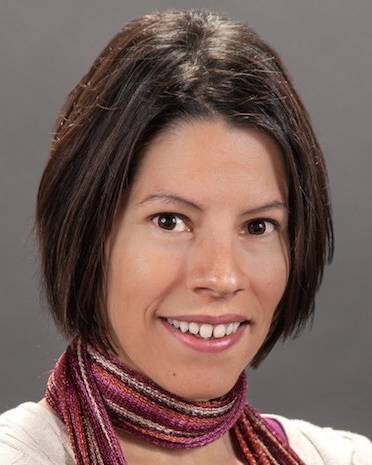Natasja van Gestel, Ph.D.
Email: natasja.van-gestel@ttu.edu
Phone: 1 (806) 834-7089
Directorship:
- Director of Research Coordination, TTU Climate Science Center
Education:
- Postdoc, Center for Ecosystem Science and Society (2013-2016)
- Ph.D., Biology, Texas Tech University (2012)
- M.S. in Soil, Water and Atmosphere, Wageningen University (1998)
Web Links:
- Website: www.nvangestel.com
- Daily Blog from Antarctica (Dec 04, 2018 - Apr 05, 2019): https://natasjavgestel.github.io

Research Interests
I combine empirical data with models using data-model fusion, or inverse analyses, to understand changes to the carbon cycle in order to determine whether terrestrial ecosystems will respond positively or negatively to climate change. Plants and soil microbes play key roles in the carbon cycle, and in turn, changes to the carbon cycle can affect the rate of climate change. If ecosystems currently store more carbon through photosynthesis than is lost via decomposition, then this would lead to a negative feedback in climate change (and hence slow the pace of change). Alternatively, perhaps microbes are more responsive to climate change (e.g. to warming) and decompose more C than is gained through photosynthesis. In this case, ecosystems would constitute a positive feedback to climate change and accelerate the pace of climate change. Using computational approaches with empirical data from the literature in addition to my own studies, I aim to predict the magnitude and direction of this carbon-climate feedback.
Another research focus that I am interested in is the change to microbial community structures with climate change. What microbial taxa respond positively to environmental change and what taxa do not? Changes in the size and relative abundances could have repercussions for elemental cycling, and therefore plant growth. Are communities in some ecosystems more resilient to environmental change? I use various computational approaches, including multivariate analyses and structural equation models to assess microbial responses to environmental change.
Currently in West Texas, I am leading a citizen science project that involves cotton growers. One of the major challenges for crop production in West Texas concerns the increasing variability in precipitation amounts, changes in the timing of precipitation and changes in the intervals between rain events. Increasing variability within a season and between seasons, coupled with increasing drought development across the region has significant impacts on soil health and sustainability, and therefore, on yield of both irrigated and dryland agricultural systems. With this project and with the help of the growers, I aim to increase soil resilience by improving soil health and increase rainwater use efficiency to mitigate negative effects of climate change on crop yield.
Selected Publications
Mchugh TA*, Compson Z*, van Gestel N*, Hayer M, Ballard L, Haverty M, Hines J, Irvine N, Krassner D, Lyons T, Musta EJ, Schiff M, Zint P, Schwartz E. (2017) Climate controls prokaryotic community composition in desert soils of the southwestern United States. FEMS Microbiology (accepted) (*Equally credited first-authors)
Hungate BA, Barbier EB, Ando AW, Marks SP, Reich PB, van Gestel N, Tilman D, Knops JMH, Hooper DU, Butterfield BJ, Cardinale BJ (2017) The economic value of species richness for carbon storage. Science Advances 3:e1601880
Hungate B, Mau R, Schwartz E, Caporaso G, Dijkstra P, van Gestel N, Koch B, Liu C, McHugh T, Marks J, Morrissey E, Price L (2015) Quantitative Microbial Ecology Through Stable Isotope Probing. Applied Environmental Microbiology 81:7570-7581
van Gestel N, Dhungana N, Tissue D, Zak J (2016) Seasonal microbial and nutrient responses during a five-year reduction in the daily temperature range of soil in a Chihuahuan Desert ecosystem. Oecologia 180:265-277
van Gestel N, Reischke S, Bååth E (2013) Temperature sensitivity of bacterial growth in a hot desert
soil with large temperature fluctuations. Soil Biology & Biochemistry 65:180-185
van Gestel N, Schwilk D, Tissue DT, Zak JC (2011) Reductions in daily soil temperature variability
increases soil microbial biomass C and decreases soil N availability in the Chihuahuan
Desert: implications for ecosystem C and N fluxes. Global Change Biology 17:3564-3576
Department of Biological Sciences
-
Address
Department of Biological Sciences, Texas Tech University, Box 43131 Lubbock, TX 79409 -
Phone
806.742.2715 -
Email
biology@ttu.edu
